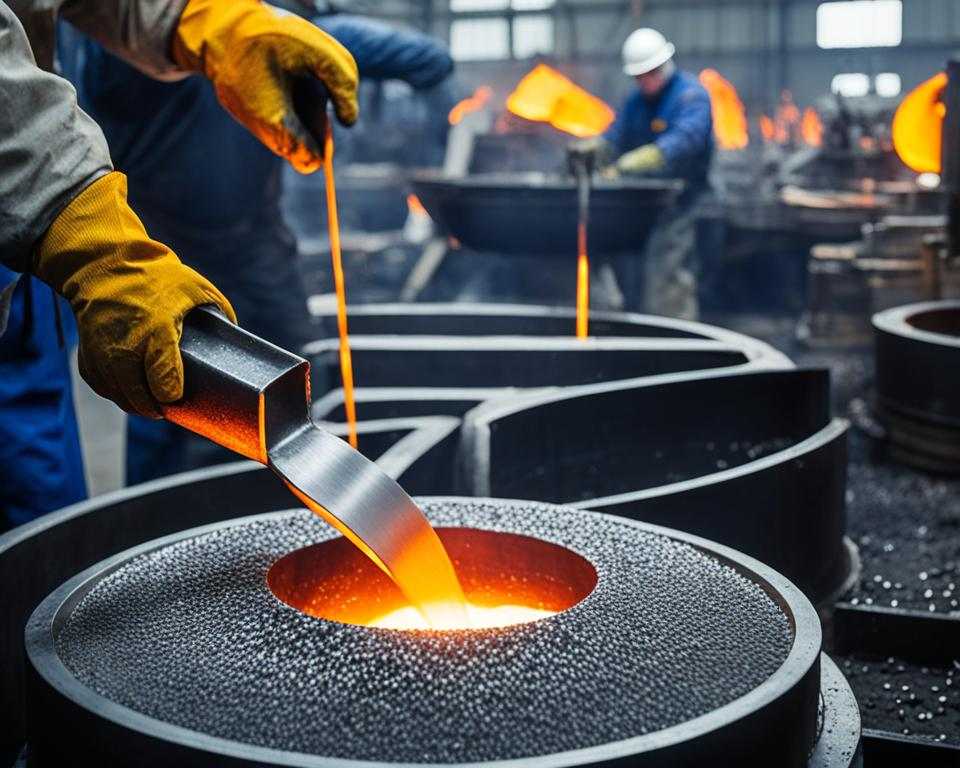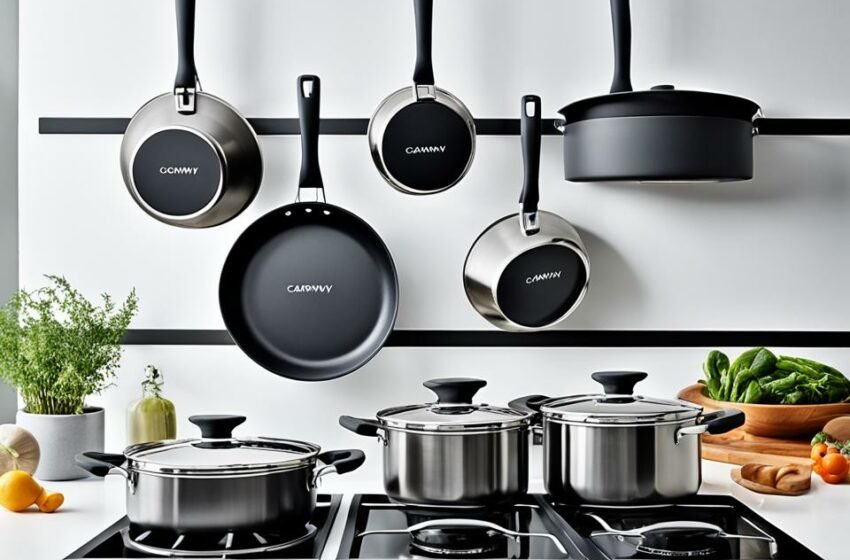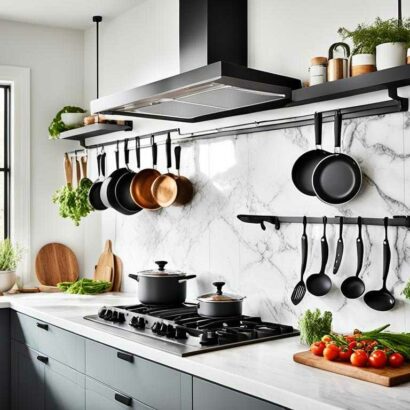Caraway is an emerging direct-to-consumer cookware brand that has been gaining a lot of buzz for its trendy ceramic-coated nonstick pans. Known for vibrant colours and innovative materials, many home chefs have gravitated toward Caraway for upgrading their kitchen tools. But despite the rise of this modern cookware company, they have still maintained a good deal of privacy when it comes to where their products are manufactured.
Table of Contents
Caraway’s Focus on Quality Control and Testing
Caraway emphasizes that they take great care in overseeing the manufacturing process to create high-quality products. Their cookware goes through rigorous testing both internally and via third-party labs to evaluate the nonstick performance, durability, efficiency, heat distribution, and overall safety.
The company’s products are also OEKO-TEX certified to validate they are free from harmful levels of more than 300 potentially dangerous chemicals. Caraway recognizes that understanding how and where products are made is important. However, they may limit some specific details to protect proprietary techniques, partners, and their ability to control pricing.
Where Final Assembly Takes Place
While not disclosing the exact factory locations, Caraway has shared some broader details on where assembly takes place before products are shipped out to customers:
- United States – Some Caraway cookware is put together for final touches within domestic US facilities. Products made locally may include sauté pans, saucepans, and ceramic baking dishes.
- China & Taiwan – Additional Caraway final assembly plants are based out of East Asia. Facilities across China and Taiwan likely account for other product ranges like frying pans, pots, and kitchen tools.
Performing final checks and quality control domestically and in Asia allows Caraway to maintain efficiency while still overseeing critical manufacturing processes first-hand. Their direct partnership approach eliminates excessive third parties and gives them the capability to swap factories if quality issues ever arise.

Background on Founders and Product Sourcing
Tracing the origins and business experiences of Caraway’s founders also offers some context on why the brand is so selective with manufacturing specifics. Co-founders Jordan Nathan and Josephine Yu have extensive backgrounds in global supply chain operations and consumer product development.
- Jordan Nathan previously managed production partnerships and coordinated logistics in China for several major home goods companies. His speciality is building reliable overseas supply chains.
- Josephine Yu honed her product design skills and quality control processes while helping launch consumer goods startups and larger brands alike.
Through their combined expertise, Caraway’s founders leverage existing networks and methodologies for sourcing quality materials and managing overseas manufacturing without disclosing every factory detail. Secrecy allows them to maintain prime access to specialized suppliers and partners.
Overview of Caraway’s Production
| Manufacturing Standards | Description |
|---|---|
| Worker Safety and Conditions | All facilities meet rigorous standards |
| Direct Oversight | On-site Caraway reps manage protocols |
| Latest Processes and Machinery | Suppliers utilize advanced equipment |
| Continuous Investment | Funding to improve emerging technologies |
While not the full picture, the information Caraway does share on its website regarding manufacturing gives a broader view:
- All manufacturing facilities meet rigorous standards for worker safety and ethical working conditions
- Caraway representatives directly oversee and implement testing protocols at factories
- Their suppliers utilize the latest tools and processes in aluminium, stainless steel, and ceramic production methods
- Ongoing investments are made to update machinery as new technologies emerge
The brand also explains that each product category involves a complex matrix of material sourcing, coatings, weatherproofing, moulding, and much more. Keeping some proprietary details private sustains fruitful partnerships across this intricate supply web.
Cookware Materials and Production Processes
To better appreciate why Caraway is so protective of their production details, it helps to understand the various complex processes behind making their pots and pans.
Aluminum Cookware
- Aluminum is lightweight, durable, and excels at quick, even heating
- Metal Forging & Casting
- Caraway likely sources premium aluminium ingots and ore material
- Aluminium must be melted, moulded, and often mixed with small amounts of other metals
- Specialized equipment needed for moulding bodies of cookware
- Coating & Treatments
- Protective layers bonded to aluminium like stainless steel or enamel
- Caraway uses durable, PFOA-free ceramic-based coating
- Proprietary methods to cure, polish, & reinforce coatings
- Quality Testing
- Evaluating heat conduction, magnetization, visual defects
- Ensuring coatings won’t chip, peel, or degrade
- Checking structural integrity, weight thresholds, product consistency
Stainless Steel Cookware
- Low reactivity, naturally nonstick properties when polished
- Metal Rolling & Pressing
- Grade 304 stainless steel formed into cookware
- Run through rolling mills and annealing furnaces
- Pressed into precise cookware shapes at hot temps
- Coatings & Treatments
- Electrochemically applied layers to optimize performance
- Special nonstick enhancement from titanium or chromium
- Metal polishing and protective sealing
- Quality Control
- Testing heat spotting, corrosion resistance, durability
- Magnetic and hardness testing
- Handles must pass grip, weight, and drop checks
This shows just a sample of the many complex steps and standards behind aluminium and stainless steel cookware production. Keeping insider know-how of suppliers and techniques is key for quality and cost control.
Why Secrecy Over Manufacturing Has Benefits
Caraway faces heavy competition from larger brands with big marketing budgets and retail distribution. To sustain its direct-to-consumer model focusing on digital sales, keeping some manufacturing specifics private has strategic advantages:
- Cost Control – No middlemen allow better price negotiations and flexibility if issues arise at a factory. Caraway passes cost savings directly to customers with prices 20-40% below competitors.
- Quality Safeguards – Direct relationships and oversight ensures strict protocols. If a test fails, Caraway swaps sub-par factories immediately to protect its premier status.
- Future Innovation – Isolating production streams gives Caraway an advantage in rapidly developing better coatings, materials, etc. They invest in emerging technologies earlier without risks of intellectual property theft.
While absolute production transparency has benefits, Caraway provides broader oversight through ethical audits and quality certifications. Strategic secrecy over select manufacturing details fuels fast-paced innovation customers demand.
Caraway’s Ongoing Journey with Manufacturing Partners
As a young company, Caraway acknowledges its manufacturing processes are continuously evolving. They share new protocols and policies as practices improve. Recent developments include:
- Expanded American manufacturing to offer faster fulfilment and support US jobs
- Added more leadership for direct supply chain oversight and partnerships
- Launched European facilities to extend reach to new regions
- Implementing advanced technologies like RFID tracking for raw materials
- Funding solar panels and recycling systems at key factories
Conclusion
Many direct-to-consumer brands like Caraway that experience rapid growth eventually face scrutiny over where their factories are located and how much visibility they provide. As Caraway continues maturing, we may see them reveal more specific details if customers demand it. But for now, the strategic and quality benefits they gain through some confidentiality regarding manufacturing partners seem to be fueling their ability to offer exceptional price-to-performance cookware.
Rather than make definitive claims on sourcing, Caraway aims for full accountability through stringent audits and testing programs. As they expand, hopefully, their geographic diversity, ethical checks, and oversight protocols will satisfy most concerns over the origins of where these trendy ceramic-coated pans are produced.



